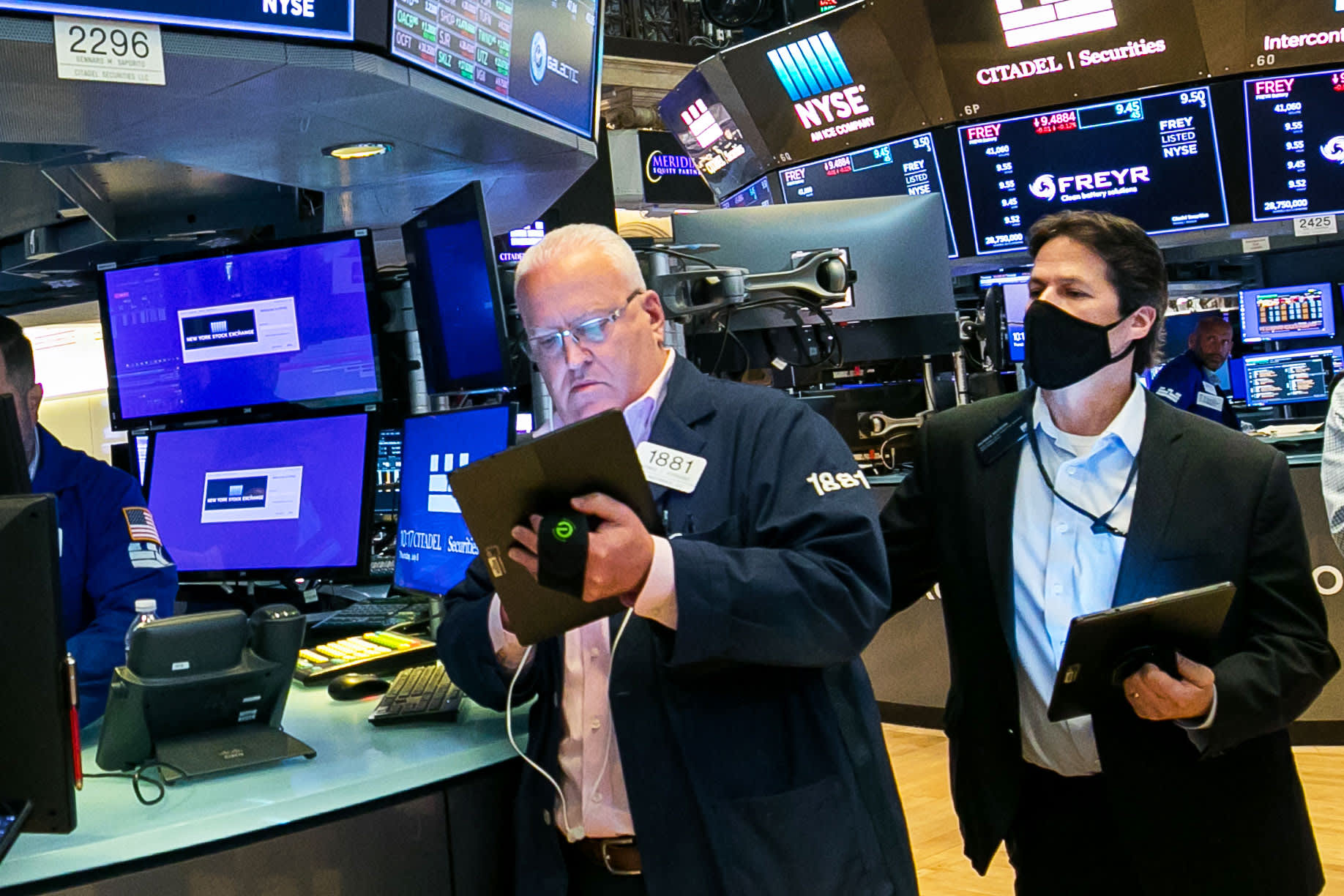Dow futures fall more than 200 points ahead of key retail sales data, Home Depot shares decline

Traders on the floor of the New York Stock Exchange.
Source: NYSE
U.S. stock index futures fell in early morning trading Tuesday, after the Dow and S&P 500 closed at record highs during regular trading on Monday.
Futures contracts tied to the Dow Jones Industrial Average fell 235 points, or 0.7%. S&P 500 futures shed 0.5% and Nasdaq 100 futures lost 0.4%.
Dow member Home Depot fell 3.5% in premarket trading after reporting second-quarter results, knocking futures. While quarterly earnings topped estimates, same-store sales rose 4.5% in the period, below the 5% consensus estimate of analysts polled by StreetAccount. U.S. same store sales increased by just 3.4%.
Walmart shares ebbed 1.2% lower in premarket trading even after second-quarter earnings topped estimates. The retailers cautious forecast may be the reason shares dipped. The company said it will earn between $1.30 and $1.40 a share this quarter. The consensus analyst estimate is $1.32, according to StreetAccount.
The closely watched retail sales data will be released on Tuesday by the Census Bureau, with the Street expecting the reading to show a slowdown in July as the delta variant spread. Economists surveyed by Dow Jones are calling for a 0.3% decline for last month, after June’s reading showed a surprise 0.6% jump.
The S&P 500’s move during Monday’s session marked a milestone as the benchmark index doubled from its pandemic closing low on March 23, 2020. This marks the fastest bull-market doubling since World War II, according to calculations from CNBC.
The Dow and S&P 500 posted their fifth straight positive session on Monday, rising 0.31% and 0.26%, respectively. Each clawed back early losses to hit both intraday and closing all-time highs. The Nasdaq Composite, however, declined 0.2% to close in the red.
Stocks have recovered from their pandemic lows at a blistering rate, and some on Wall Street see more gains ahead.
“We remain bullish on stocks (particularly cyclicals/value) thanks to a strong earnings season, signs of receding risk from the delta variant, and normalization of bond-equity correlation,” JPMorgan wrote in a note to clients Monday.
Monday’s action came despite disappointing economic data from China. The nation’s retail sales were up 8.5% year over year during July, which was short of the 11.5% jump economists polled by Reuters were expecting.
Goldman Sachs noted that the impacts would likely be localized.
“Rising COVID case growth is likely fueling the slowdown seen in China and the decline in manufacturing sentiment, but the economic impact — at least in the US and Europe — is unlikely to be big,” the firm said Monday in a note to clients.
Become a smarter investor with CNBC Pro.
Get stock picks, analyst calls, exclusive interviews and access to CNBC TV.
Sign up to start a free trial today




